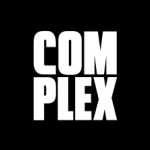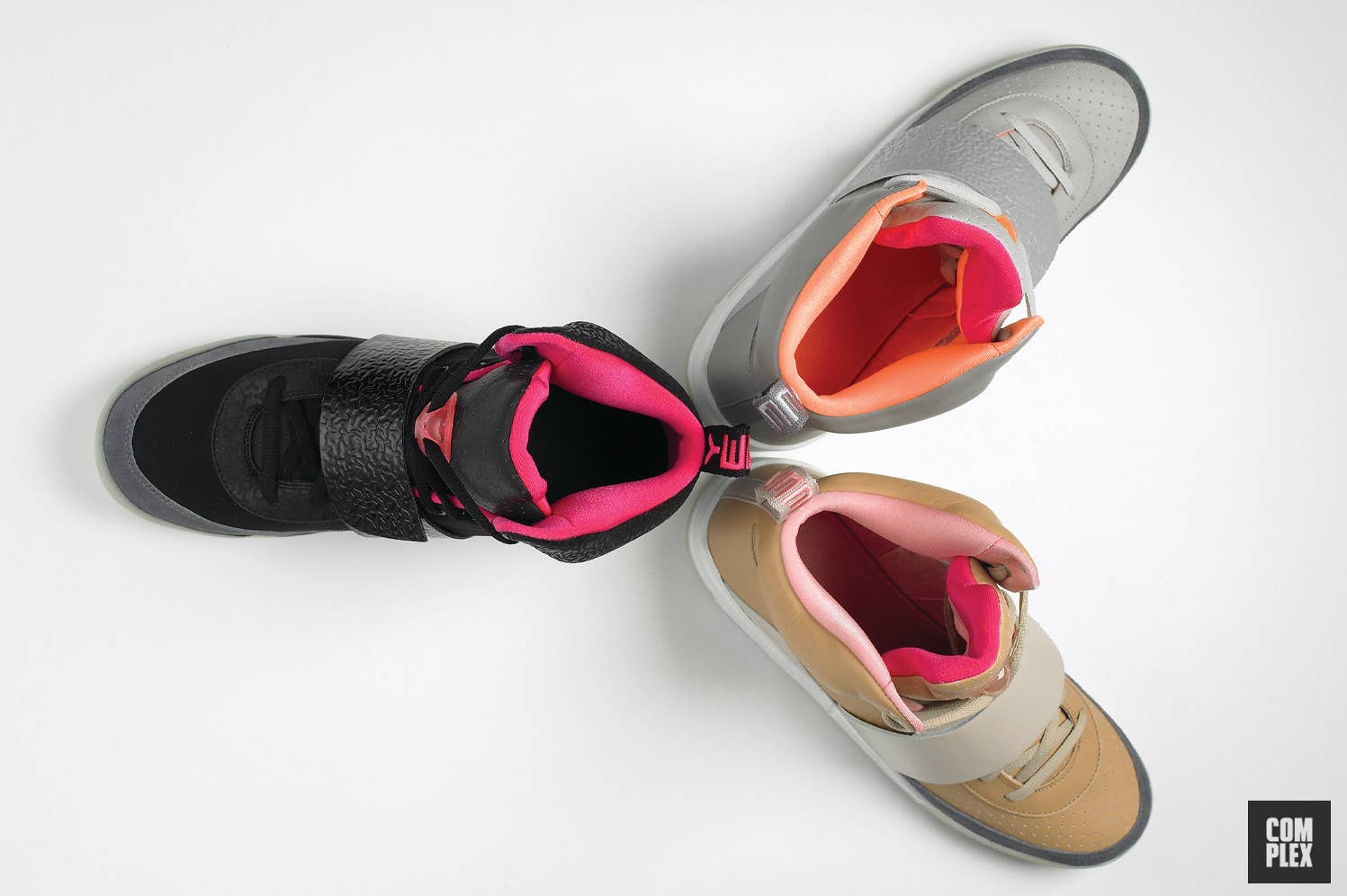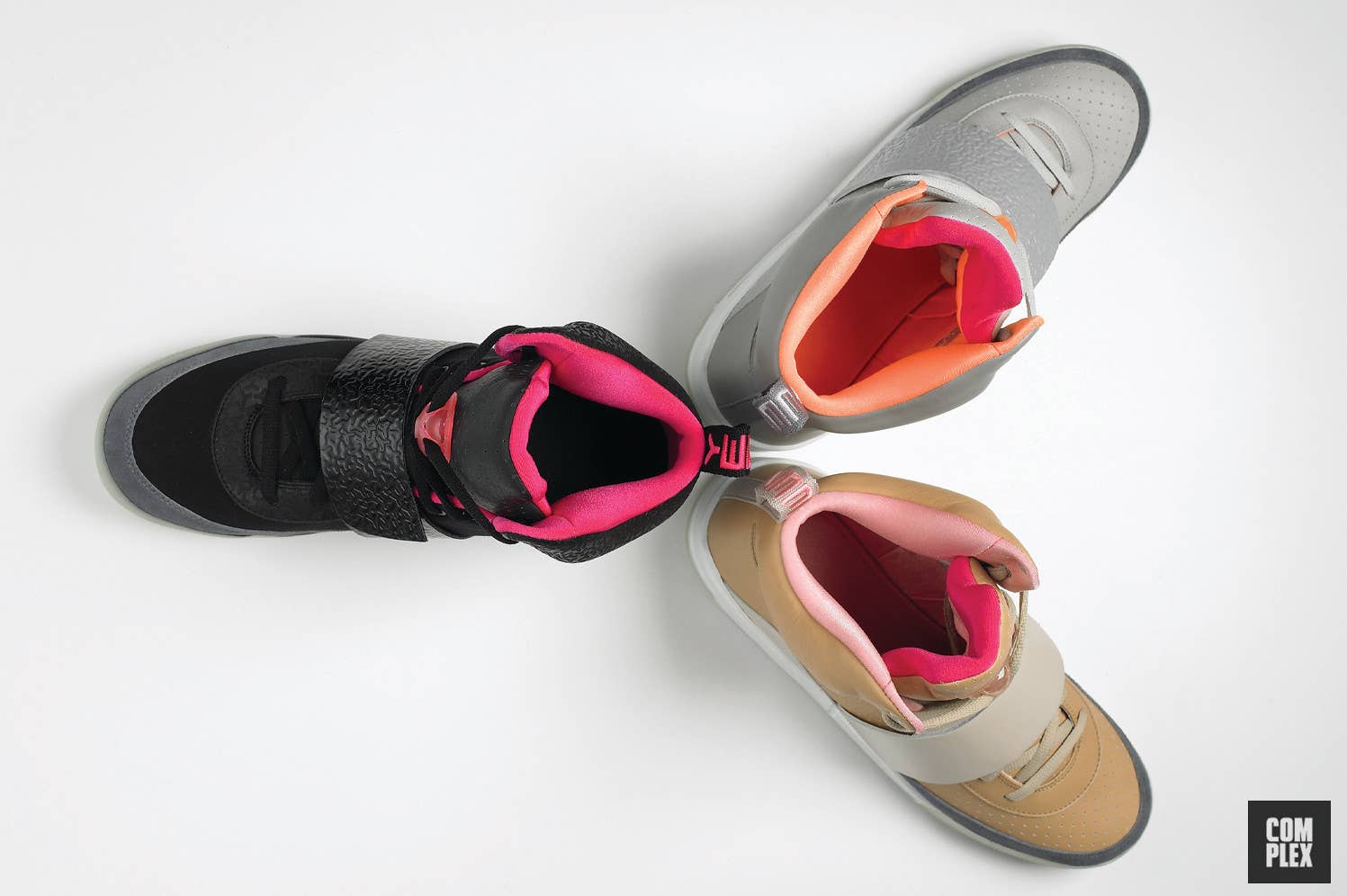
This story was originally published as part of Complex’s April/May 2009 magazine issue.
Phase 1: The Promise
In Which Two Men Plot Something Called Domination…
Kanye West (MC, Producer, Hypebeast): I’ve always stressed my passion for design—and not just, “Oh, let me throw my name on this,” but to use my celebrity as an opportunity to jump into the design world—and in this case, to design my own shoe.
Mark Smith (Creative Dir. of Special Projects, Nike): I don’t really put my life in dates in a normal way. [Laughs.] So I couldn’t even say when everything went down, but one day I got a call asking me if I would work with Kanye on the project.
KW: It was after the Air Force 1 “1 Night Only” event [in December 2006]. I sat there and drew countless forms of shoes, and a lot of them were inspired by Back to the Future, by the McFlys or whatever people call them—I just call them the Mags. All kinds of different ideas that stemmed from that and Robotech and all my other anime influences.
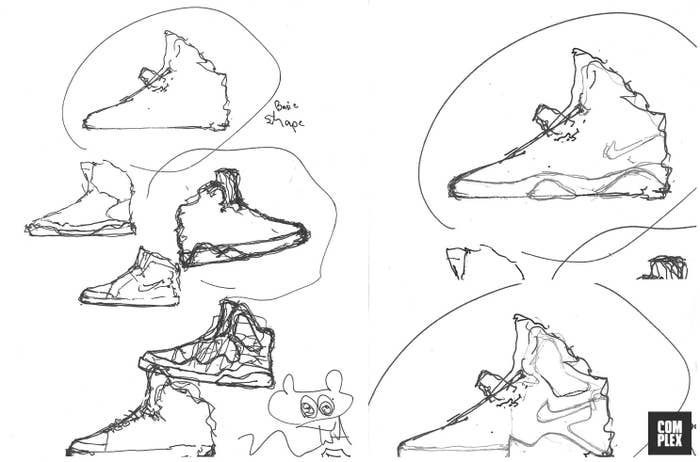
MS: What we wanted to do was really create something that was specific and unique to the two of us working together, so it wasn’t an entourage full of people on either side.
KW: Nike is the No. 1 sneaker lifestyle brand, right? And I’m the No. 1 most influential cultural pop art brand: scarves, beards, plastic glasses, whatever. So you take those two things and you mesh that—it’s very exciting. I’m the Nike of culture.
MS: He showed me what he was into. I asked him about sneakers that he liked, what he was wearing, and why he was wearing them; he’s very up to the minute on what he likes.
KW: I grabbed all these Jordans from their archives and I’m sitting in the office next to Tinker [Hatfield, Jordan designer] and Mark, just pulling out shit and putting it in front of him like, “I like this element.” We just vibed it out.
MS: He started just dumping stuff out, and I did the same thing. We did it in the Innovation Kitchen—Nike’s underground innovation center, where tomorrow’s technologies are kind of getting bubbled up, so he actually was seeing a bunch of stuff that nobody else would see.
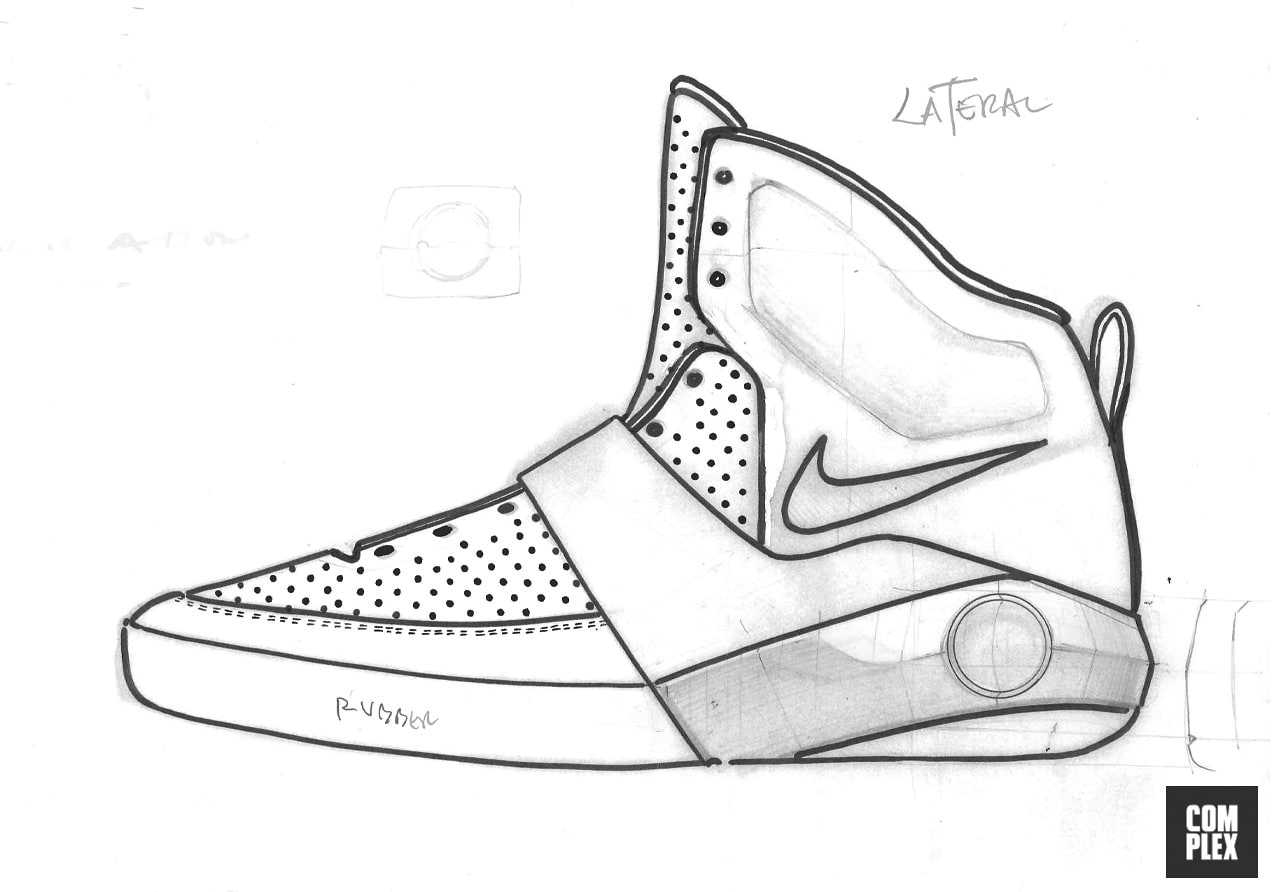
KW: The types of shit Nike can do? I say, “Hey, use this sole,” and they have it? The possibilities are just endless.
MS: I always try to look at things through an athlete’s eyes—if you look at a basketball player, his or her performance is on court, in the middle of a game. The equivalent for Kanye would be to get onstage and rock it for a couple of hours. And he goes through a pretty athletic show, so we wanted to make sure these were super-comfortable performance shoes.
KW: Every guy drew Nikes in fourth grade, so to really do it is a dream come true.
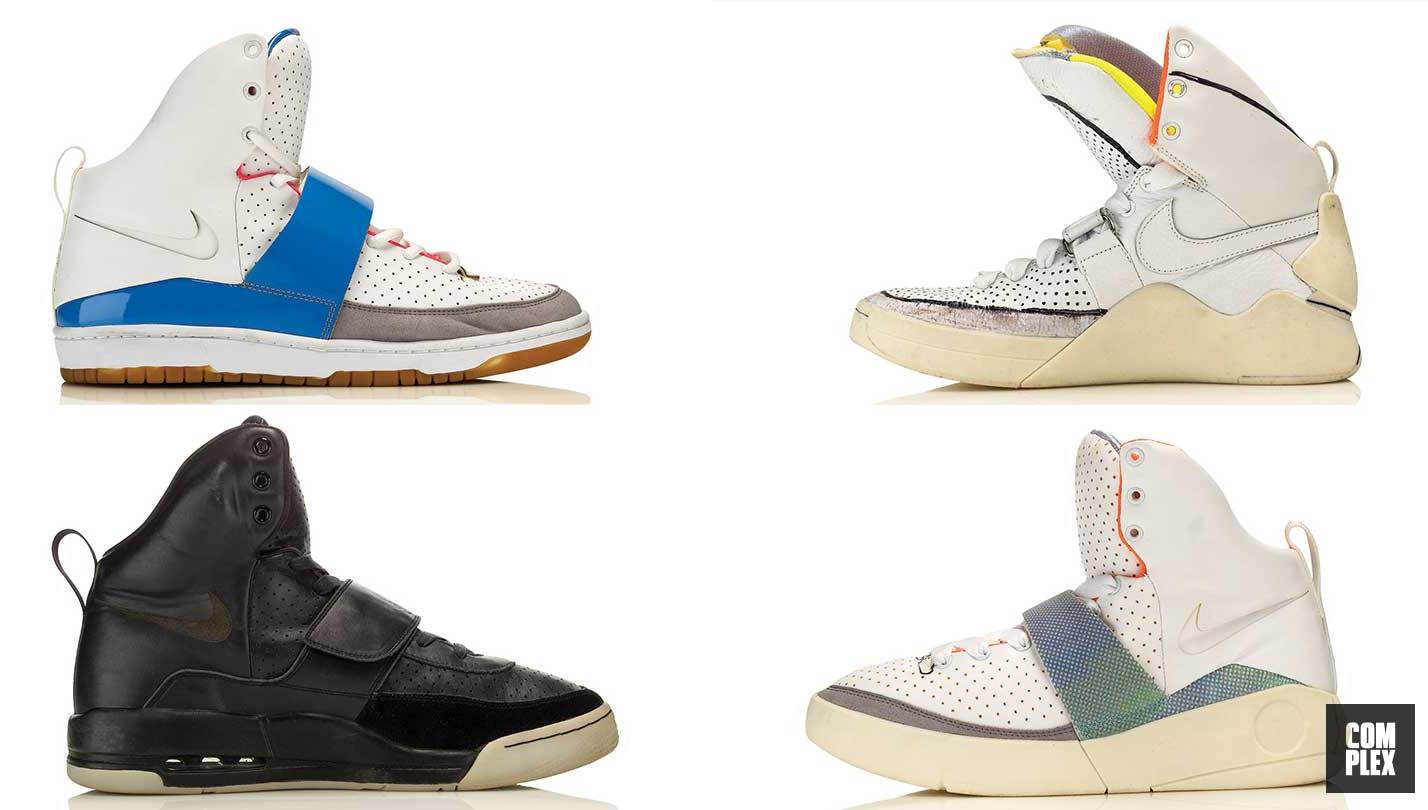
Phase 2: The Process
In Which Difficult Decisions Get Made…
KW: I’m aesthetics first on anything. Even when I make music, I think about the aesthetics: Where will you be when you’re listening to this? Visuals first. I wanted to take the concept of the future pop colors and all this ’80s influence and make it wearable.
MS: I remember him saying originally that he wanted to create something that looked and felt like it had come from the past. I thought, that’s actually really cool, because back then it was very, very simple. There weren’t a lot of extras on the older stuff. So that kind of pushed that edge a little bit; instead of adding a whole bunch of today’s stuff onto it and super-technology or anything like that, it was more about keeping things simple. And if you look at it at a glance, it might look like it was a little retro.
KW: We developed our own soles for the shoe also, which is the hardest thing and takes the longest—so long that there was a point in the design [process] where I just had to pick a sole they already had. That was one of the days my heart got broken. [Laughs.]
MS: We never looked at one shoe and said, “You gotta take the toe from this and the heel from that and the bottom from this and slam it all together.”
KW: The original shoes were battery-operated, and they lit up. I have a version of the first shoe that has a push-button on the side, and it lights up and stays lit.
MS: We had a very futuristic-looking product for a long time. Then Kanye said, “Can we use something that’s recognizable?” So I think the elephant tooling, which was directly pulled from the Jordan 3, really rooted the shoe in that time period.
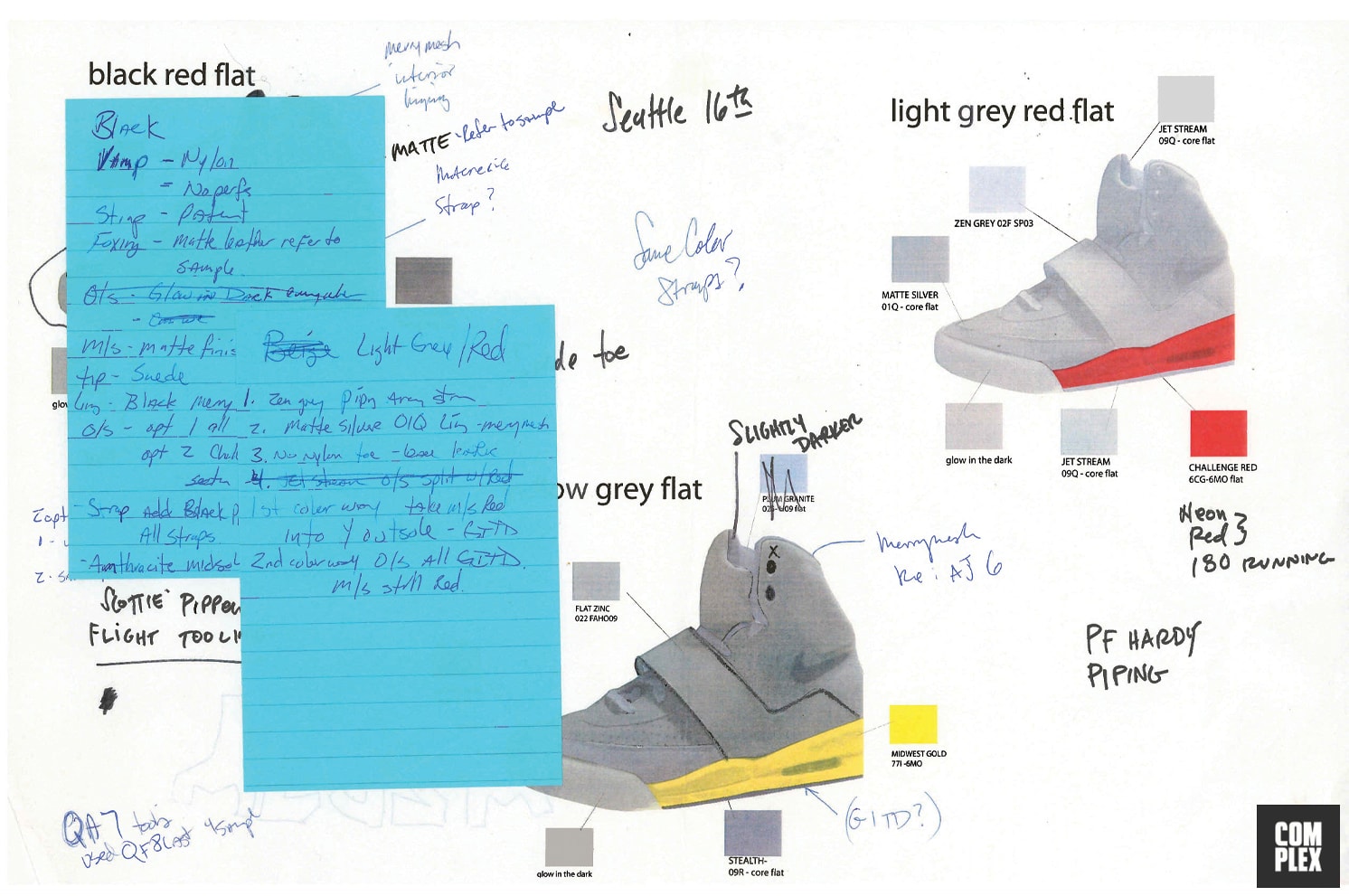
KW: A lot of that patent stuff Mark came up with, like the strap—that’s when I was happy to be able to work with an OG designer like that.
MS: You have to make sure the lines, the materials, the direction are all intact—and then, once you get those broad strokes in, then you really start applying the storytelling, the textures, and the unique aspects that make it something for Kanye specifically.
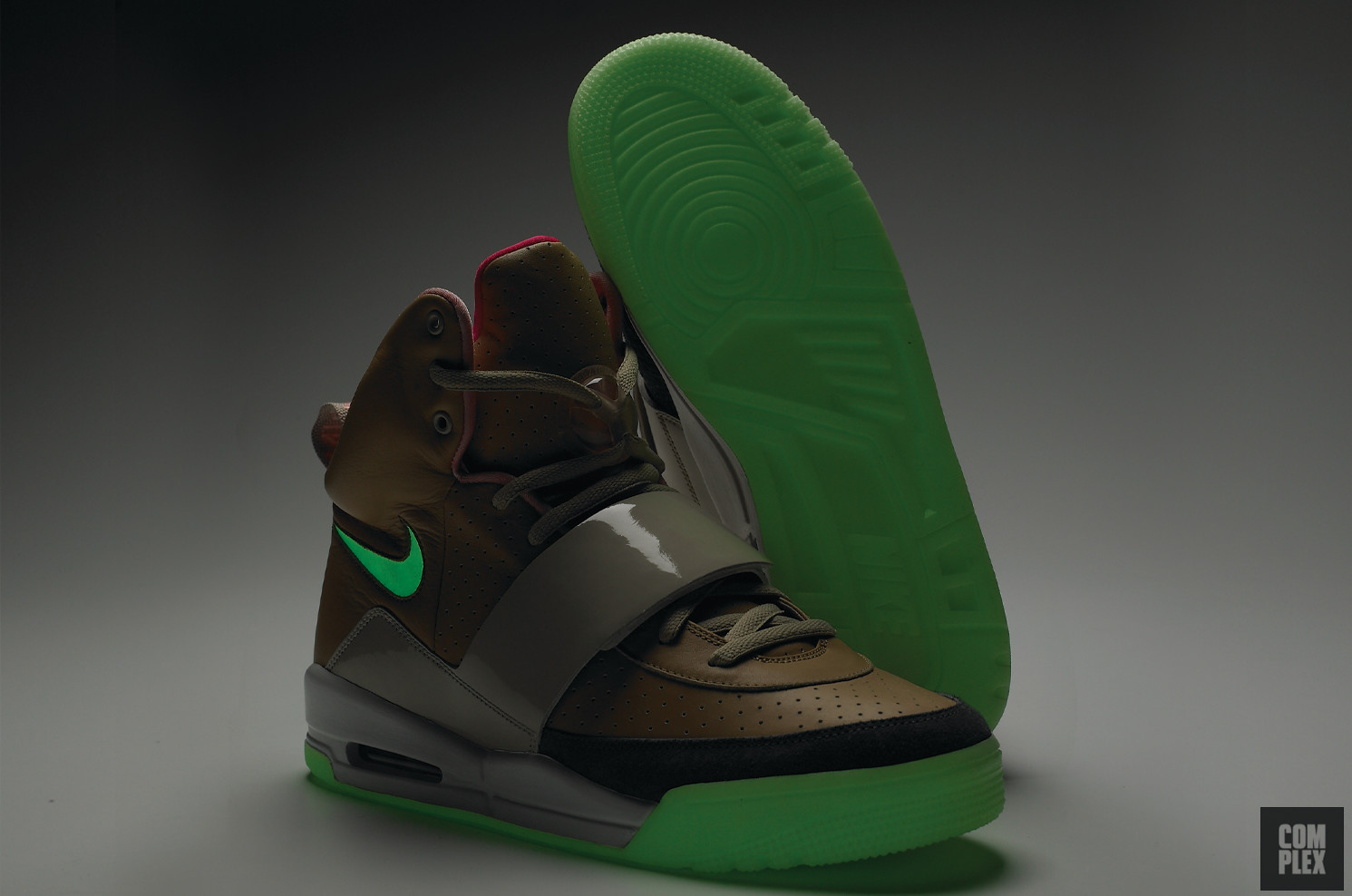
Phase 3: The Product
In Which the Colors Are Finalized and the Buzz Mounts…
MS: If we did our job right, we could take this shoe and put it in the line or a catalog from back in the day, and it would just feel like it was part of the lineup. But when you bring that shoe forward into today, it should also feel a little timeless; it’s yesterday and today slammed together.
KW: Conceptually, it was made for a person that was walking on another planet. So it’s like almost a shoe-like space boot.
MS: There was never a design brief or a color brief; it was very fluid. He had some really great ideas coming into it, with neutral browns and tans and keeping it a very monotone color and then letting the interior have a little bit more pop to it.
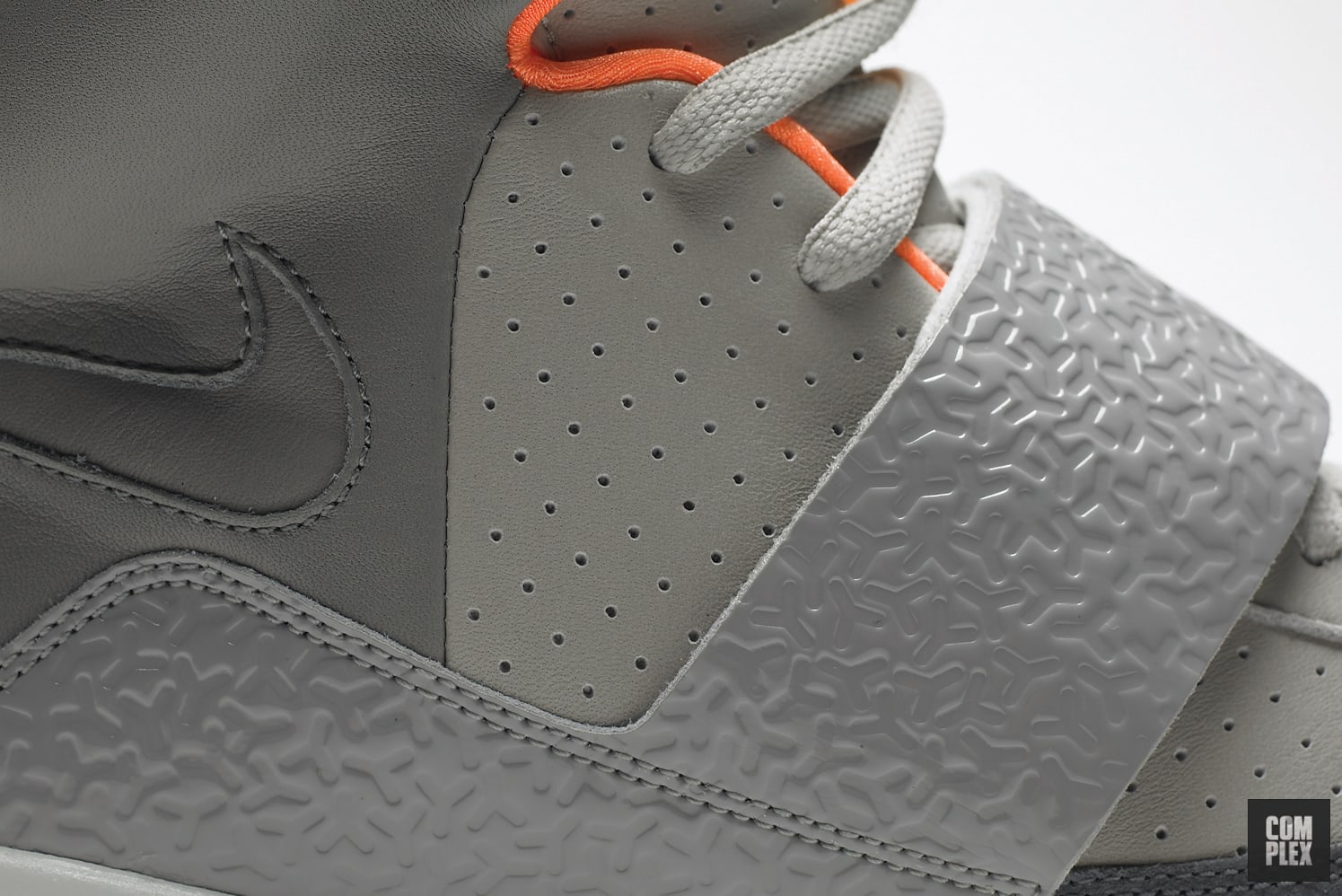
KW: I wanted to give the Yeezys their own colorway. You wouldn’t have a whole fuchsia wall in your house, but you might have a little Jeff Koons piece of art that’s fuchsia and small. So I do it small, on the inside of the tongue.
MS: Throughout the process, we probably did a couple hundred color studies, and I think we only showed him a couple; it was more like he was giving us his insights into color and then we’d play with it. Like, “What if this black was a suede?” or “What if this black was patent leather?”
KW: I got, like, 12 different colors at my house, just colorway samples we were trying. I’ve worn them at certain events—the all-black ones, I wore at the Grammys.
MS: I think we really started hitting our stride when we had real samples to look at.
KW: It expresses my sensibility of design: what I want to do with clothing, with hotels eventually. The type of colors that I live in.
MS: We agreed that any time we wanted to add something to the product, we had to take something else away so that it wasn’t just adding, adding, adding—it was just one of those where it can get down to as little as possible but make it as functional and comfortable and cool as possible.
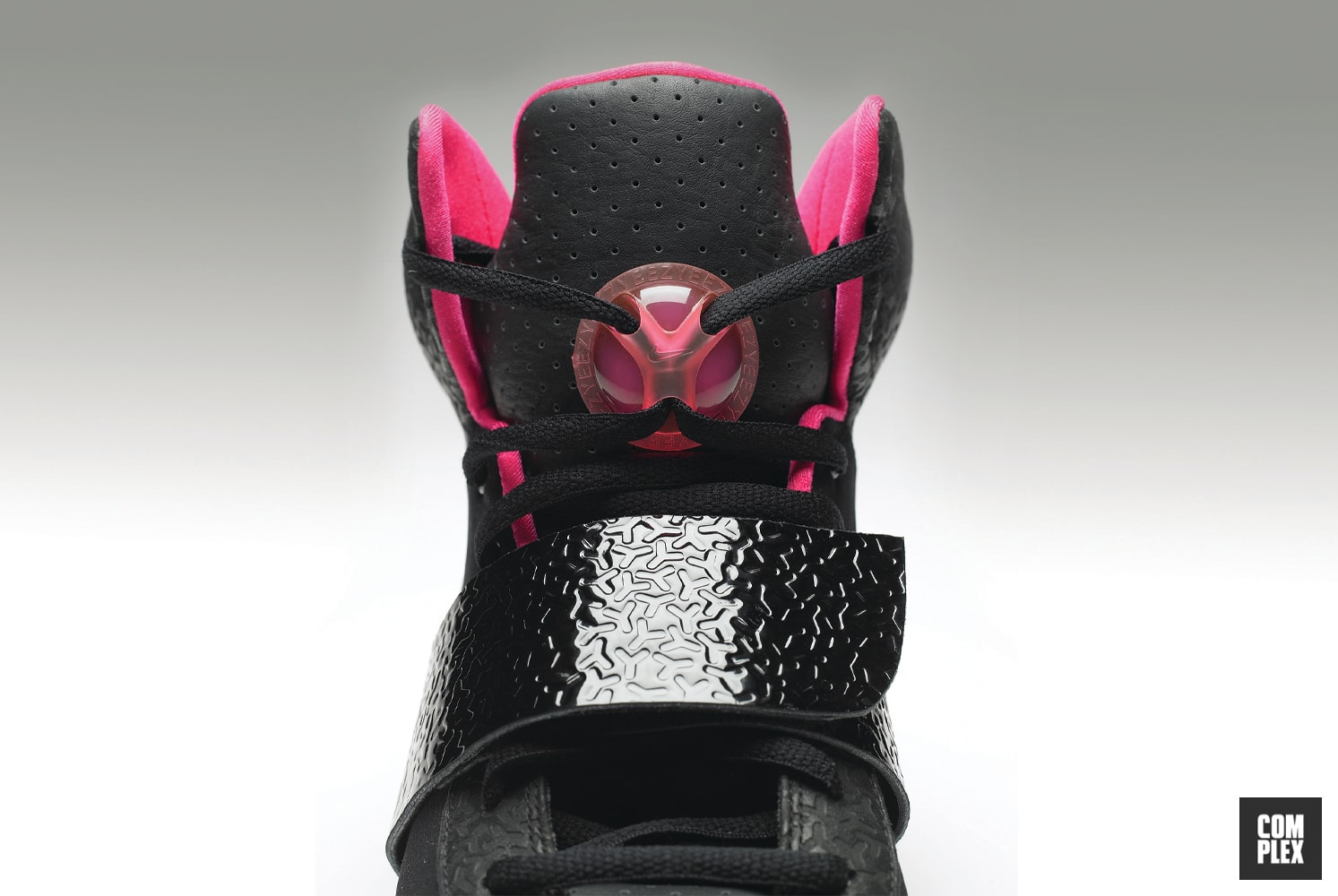
KW: We had a lot of conversations like, “We wanna just put it on eBay,” and I’m like, “No! People need to be able to get this shoe!” At first, they were only gonna do 3,000 pairs. Now they’re doing 9,000, which is still limited. It’s not like it’s 200,000.
MS: We’re really happy with the result.
KW: Oh my God, they’re gonna be out of there! Toot! [Laughs.] They’re not even gonna hit the ground. The boxes from the truck will literally not hit the ground.
